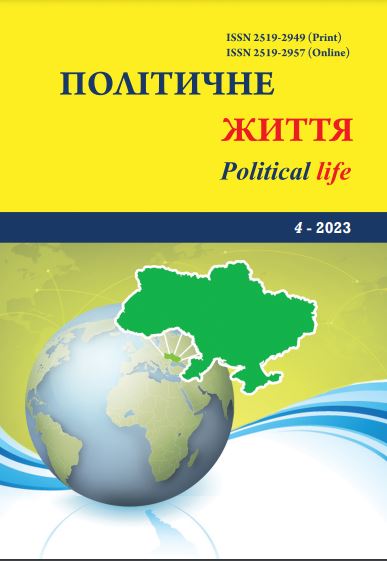The American-German Relations (1981–1989)
DOI:
https://doi.org/10.31558/2519-2949.2023.4.21Keywords:
American-German relations; NATO’s “dual solution”; missile deployment; anti-war demonstrations; disarmament policyAbstract
The American-German relations of the 1980s are analyzed. It was the period of the “cold war” aggravation in the early 80s and its gradual end in the late 80s. The article is aimed at the American-German relations in 1981–1989 research and their influence on the international relations. At the same time, the author solved the task: to give an assessment of bilateral relations through the prism of the analysis of international relations in the conditions of the “Cold War”, relying, first of all, on the analysis of memoir literature as a source of research and on the analysis of monographic publications. The comparative historical and system research methods were applied as they promote the impartial interpretation of the scientific development object. Bilateral relations during the period of activity of President R. Reagan and Chancellors G. Schmidt and G. Kohl were quite active. In the context of the escalation of the American-Soviet confrontation (for which the American side blamed the Soviets), West Germany, which traditionally pursued a pro-American policy, was one of the countries where the United States planned to deploy a new type of medium-range nuclear missiles. However, a large-scale anti-war movement in the country stood in the way of this. Relations between the right-wing Republican R. Reagan and the Social Democrat G. Schmidt, which had been developing contradictory, became complicated. Bilateral relations received a new impetus after the formation of a center-right government in Germany led by Chancellor H. Kohl, who was given absolute preference in Washington compared to his predecessor. The missile deployment program was carried out by the United States in full, which, according to Western politicians, forced the Soviet leadership to sit down at the negotiating table, which eventually led to a de-escalation of international tensions.
References
Лільєгрен Г. Від Таллінна до Туреччини. Мемуари шведа і дипломата / пер. з англ. А. Таращук. Київ: Темпора, 2010. 352 с.
Brandt W. My Life in Politics. New York: Viking Penguin, 1992. xxvi, 498 p. URL: https://archive.org/details/mylifeinpolitics00bran/page/497/mode/2up?view=theater (Дата звернення: 5.09.2023)
Heumann H.-D. Hans-Dietrich Genscher: Die Biographie. Paderborn: Verlag Ferdinand Schöningh, 2012. 346 s.
Kissinger H. Years of Renewal. New York: Simon & Schuster, 1999. 1151 p.
Kohl H. Mein Tagebuch. 1998–2000. München: Droemer, 2000. 352 s.
Looking Forward. An autobiography / by George Bush with Victor Gold. New York: Doubleday, 1987. xii, 270 p. URL: https://archive.org/details/lookingforward00bush (Дата звернення: 4.09.2023)
Major J. The Autobiography. New York: HarperCollins Publishers, 1999. xxiii, 774 р.
Noack H.-J. Helmut Schmidt. Die Biographie. Berlin: Rowohlt Taschenbuch Verlag, 2008. 318 s.
Reagan R. An American Life. New York: Simon & Schuster, Threshold Editions, 1990. 748 p. URL: https://archive.org/details/americanlife0000reag_l4m7/page/748/mode/2up?view=theater (Дата звернення: 10.09.2023)
Schröder G. Mein Leben in der Politik. Hamburg: Hoffman und Campe Verlag. Fiction & Literature 2013, 22 July. 543 p. URL: https://books.apple.com/gb/book/entscheidungen/id674633180 (Дата звернення: 16.08.2023)
Schwarz H.-P. Helmut Kohl. Eine politische Biographie. München: Deutsche Verlags-Anstalt, 2012. 1052 s.
Thatcher M. The Downing Street Years. London: HarperCollins Publishers, 1993. xiv, 914 p.

